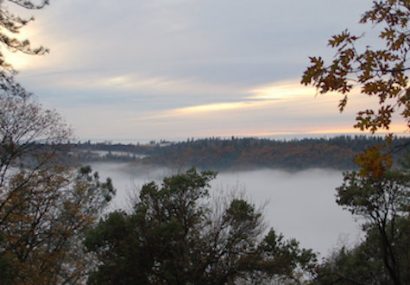The Nevada State Engineer’s efforts to regulate groundwater withdrawals in the over-appropriated Pahrump Artesian Basin were dealt a blow recently when a state District Court reversed the State Engineer’s order that prohibited the drilling of new domestic wells without first obtaining a two-acre-foot water right. The court concluded that the State Engineer exceeded his statutory authority; violated affected property owners’ due process rights by failing to give notice and opportunity to be heard; and lacked substantial evidence to support his decision. As a result, the court directed the State Engineer to immediately give notice to the public that the drilling restriction was no longer in effect. [Pahrump Fair Water, LLC, et al. v. Jason King, P.E., et al., Case No. 39525 (5th Dist. Ct. Dec. 6, 2018).]
Factual and Procedural Background
The Pahrump Basin has a long history of over-appropriation. To address this problem, the Nevada State Engineer first designated it for special administration in 1941. Once an area receives such a designation due to groundwater depletion, the State Engineer may make appropriate rules, regulations and orders that, within the State Engineer’s judgment, are essential for the welfare of the area. Nevada Revised Statute (NRS) 534.120(1).
To that end, in 1953, the State Engineer ordered that meters be installed at all points of diversion. In 1970, the State Engineer determined that irrigation would be a non-preferred use and ordered that new irrigation applications be denied. Over time, the State Engineer limited new applications to small commercial, small industrial and environmental uses and then curtailed new applications altogether except for limited exceptions.
Nevada law does not require a person who drills a domestic well to apply for or obtain a water right permit. NRS 534.030(4); NRS 534.180(1). A domestic well is for culinary and household purposes directly related to a single-family dwelling, including the watering of a family garden, lawn, livestock and any other domestic animals or household pets. To qualify as a domestic use, the amount withdrawn annually may not exceed two acre-feet annually. NRS 533.013 and 534.180.
As of 2017, committed groundwater rights in the Pahrump Basin were close to 60,000 acre-feet per year, while the State Engineer calculated the Basin’s perennial yield as 20,000 acre-feet annually. Because domestic wells do not require a water right, the State Engineer estimates that an additional 11,385 acre-feet committed for domestic well use based on the number of existing domestic wells. According to the State Engineer’s pumpage inventories, pumping steadily increased from 14,355 acre-feet in 2013 to 16,416 acre-feet in 2017, with domestic well pumping accounting for approximately one third of the total.
The State Engineer estimates the Pahrump Basin to have 11,280 domestic wells at a density of 1 to 469 wells per square mile. If each domestic well pumps the two acre-feet annually that is allowed by statute, the pumping from domestic wells alone would exceed the Basin’s perennial yield. The State Engineer has determined that pumping by domestic wells has the potential to be the greatest source of groundwater use in the Basin, estimating that an additional 8,000 domestic wells could be drilled, which could withdraw as much as 16,000 acre-feet more groundwater from the aquifer.
Due to these concerns regarding the proliferation and impact of domestic wells, in 2017, the State Engineer issued Order #1293, which except for specified exceptions, prohibited the drilling of new domestic wells in the Pahrump Basin without first obtaining a two acre-foot water right. A group called Pahrump Fair Water, LLC (PFW), an association that was formed to challenge Order #1293, filed a petition for judicial review in Nevada District Court. While that case was pending, the State Engineer issued amended Order #1293A, which added two additional exemptions to the drilling restriction. PFW dismissed its petition for judicial review of Order #1293 and filed a new petition for judicial review of the amended Order #1293A.
On review, PFW advanced four arguments: 1) the State Engineer lacked the statutory authority to restrict drilling of domestic wells; 2) the State Engineer violated property owners’ due process rights by not providing notice and an opportunity to be heard; 3) Order #1293A was not supported by substantial evidence; and 4) Order #1293A amounted to an unconstitutional taking of private property without just compensation.
The District Court’s Decision
The Nevada Legislature has authorized a party aggrieved by a decision of the State Engineer’s to seek judicial review, which amounts to an appeal based on the record before the agency. The role of the reviewing court is to determine if the State Engineer’s decision was arbitrary, capricious, an abuse of discretion or legally erroneous. The State Engineer’s factual findings must be supported by substantial evidence in the record, which is evidence that “a reasonable mind might accept as adequate to support a conclusion.”
The District Court reversed Order #1293A on three grounds. First, the court concluded that the State Engineer exceeded his statutory power because the Legislature expressly exempted domestic wells from the scope of the State Engineer’s general supervisory control and the permitting process otherwise required for water appropriations. Because there is no statutory language that authorizes the State Engineer to restrict domestic wells in the manner done in Order #1293A, the court concluded, the order is unenforceable.
Second, the court found that the State Engineer failed to afford property owners who are affected by Order #1293A with notice and an opportunity to be heard. Absent publication of the proposed order, opportunity to oppose it and a public hearing at which testimony and other evidence could be presented, the court concluded, a due process violation occurred, which rendered Order #1293A invalid.
Third, the court held, even setting aside these legal impediments, Order #1293A was not supported by substantial evidence that new domestic wells will interfere with existing rights. The court took issue with the State Engineer’s statement that:
- . . .if existing pumping rates will lead to well failures, an increase in the number of wells and therefore an increase in pumping will accelerate the problem undoubtedly causing an undue interference with existing wells.
Finding no support for that assertion in the record, the court found that the State Engineer did not fully analyze alleged conflicts or determine how the restrictions in Order #1293A would benefit existing wells.
The court also criticized the model used by the State Engineer, concluding that the model looked at possible failures of existing wells, not the impact of potential new wells. The court further faulted the State Engineer for failing to use objective standards to determine whether the lowering of the static water level caused by new wells would be “reasonable” within the language of the statute. Having concluded that Order #1293A was invalid, the court determined there was no need to address whether the order resulted in a taking.
Conclusion and Implications
Faced with increasing demands on the state’s scarce water resources, the State Engineer has construed the Nevada Revised Statutes to give him broad regulatory authority. Historically, Nevada’s courts have afforded the State Engineer considerable deference to interpret the state’s water law and regulate water users. The Pahrump Fair Waterdecision is one of a handful of recent cases, however, in which the courts have declined to give the State Engineer such latitude.
This trend begs the question as to whether the Nevada Legislature will take steps to expressly broaden the State Engineer’s statutory authority. Because water tends to be a politically charged issue in Nevada, and if recent efforts are any indication, the Legislature is unlikely to embark on such an undertaking. It will be up to the Nevada Supreme Court to delineate the contours of the State Engineer’s powers on a case-by-case basis. Pahrump Fair Wateris poised to be the next such case in line for Supreme Court review.
(Debbie Leonard)




